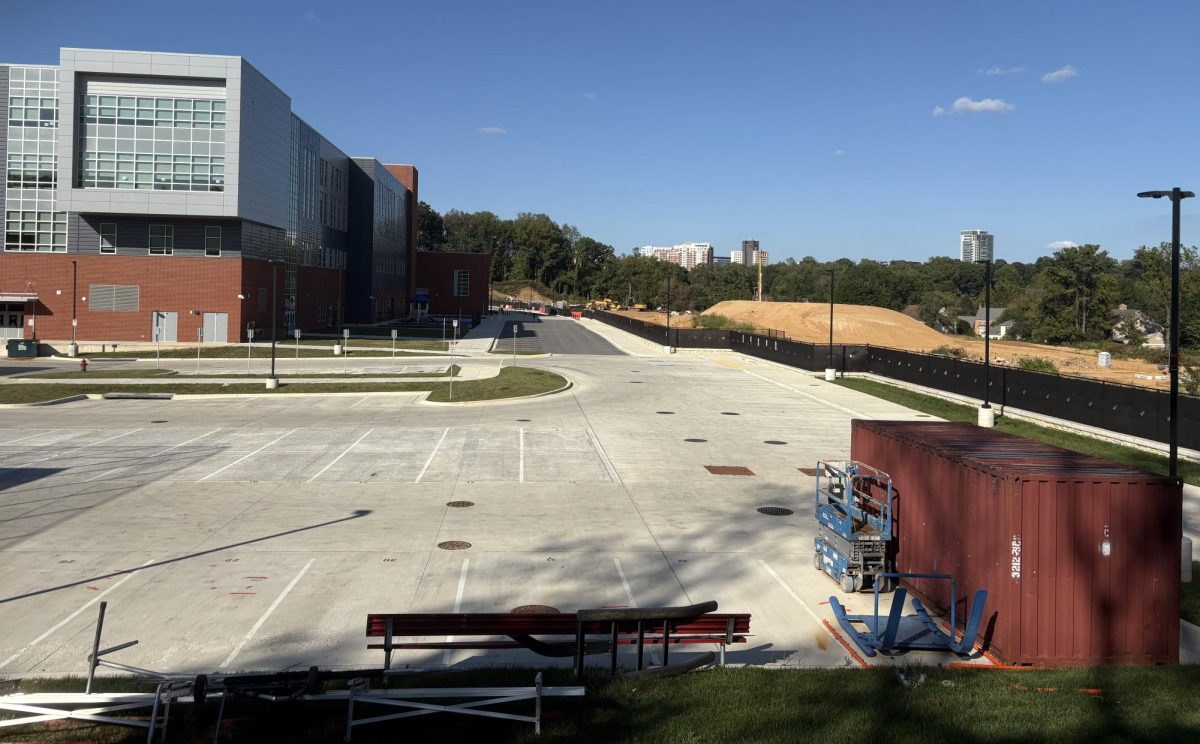Despite failing to pass during a County Council meeting last July, the fight over abolishing School Resource Officers (SROs) in Montgomery County has not slowed down. Councilmember Will Jawando and countless student groups have been working for months to try and adjust or remove the program from MCPS. On the other side, disciplinary leaders like Montgomery County Police Chief Marcus Jones and all 25 high school principals warn that removing SROs could make county schools less safe.
SROs were already a hot topic last February when the Montgomery County Council’s Public Safety Committee voted against expanding the program by adding an officer to the county’s middle schools. That proposal, though supported by many in the Montgomery County Police Department, saw vehement opposition from community groups and residents. It failed 2-0. However, there was little discussion then about eliminating the program altogether.
A few months later, the murders of Breonna Taylor and George Floyd and the movement that followed sparked conversations nationwide about the placement of police officers, especially in schools. Shortly after, the MCPS school board directed Superintendent Jack Smith to compile data to see whether the program is harmful or beneficial in schools.
The intention of his report is to see “whether the presence of SROs is compatible with MCPS goals,” according to Bethesda Beat.
Around the same time, Councilman Jawando proposed removing 12 of the 23 officers currently placed in county high schools. He has previously said that he believes the program should be cut in its entirety. The motion failed 5-4 on July 21, but Jawando pledged to continue advocating for reforming the program.
Another consequence of the renewed public involvement in racial justice and police reform is the increased involvement of students. The movement to remove SROs has seen a great deal of support from student activists.
WJ sophomore Sourish Dey is a community activist who supports the removal of SROs from Montgomery County schools.
“SROs, like most other forms of policing, target people of color much more harshly than they do other people and I think the resources we devote to SROs can be better used elsewhere,” Dey said.
Prominent Montgomery County student activism group Moco 4 Change – who organized the 2017 walkouts following the shooting at Marjory Stoneman Douglas High School – has come out in support of removing SROs and has been organizing student leaders around the county for the cause.
The opposition to SROs is not just a local reaction to a national issue. Eight three of students arrested by SROs in the past three years have been black or Hispanic even though those groups only make up 53% of students. The Board of Education hopes that Dr. Smith’s report will highlight more data on the actual impact of the SRO program.
WJ’s School Resource Officer is Officer Shate Jackson. She feels that the SRO position is critical to helping make sure students are safe while at school. She also sees her role as being a part of the greater WJ community.
“I really feel like I have a great rapport with the staff and the students. With that great rapport, I’m really shocked at where we are now and that they want to get rid of [the SRO program],” Officer Jackson said.
It is unclear if the removal of SROs would be legal under state laws. The Maryland Safe to Learn Act (2018) mandates that all schools in the state either assign an SRO to the school or provide “adequate law enforcement coverage.” The law is not explicit about what type of coverage is considered to be adequate.
In October, all 25 MCPS high school principals voted in favor of keeping the program in place with many citing the positive impact SROs have in their own school communities.
Assistant Principal Terry Heintze believes that despite the controversy, the SRO program is beneficial to the WJ community.
“SROs play a positive role in the school community by providing valuable community resources to students, staff, and parents…I do not think the school would gain anything positive from removing the SRO program from schools,” he said.
For now, the debate is at a stalemate until Superintendent Smith comes out with his recommendations this winter.





















